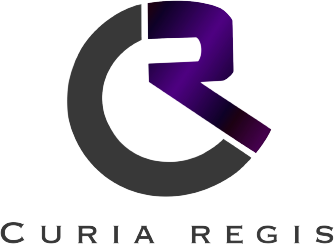On the 29th of November 2023, the Monetary Authority of Singapore (MAS) has revised its Guidelines on Licensing and Business Conduct for Fund Management Companies [SFA 04-G05].This guideline provides Fund Management Companies in Singapore with the requirements necessary to qualify as fund managers and how to supervise and regulate their businesses.
The Guidelines on Licensing and Business Conduct for Fund Management Companies [SFA 04-G05] displays the pre-requisites criteria, application procedures, ongoing business conduct requirements for Licensed Fund Management companies (LFMCs), Venture Capital Fund Managers (VCFMs) and Registered Fund Management companies (RFMCs).
| Key Changes | Previous Guideline | Revised Guideline |
| Fit and Proper | A fund management company should satisfy MAS that its shareholders, directors, representatives and employees, as well as the fund management company itself, are fit and proper, in accordance with the Guidelines on Fit and Proper Criteria issued by MAS [FSG-G01]. | A fund management company should ensure that its shareholders, directors, representatives, employees and the fund management company itself fall under ‘fit and proper’ following the Guidelines on Fit and Proper Criteria issued by MAS [FSG-G01] The revised guideline provides additional information on how the Guidelines on Fit and Proper Criteria issued by MAS [FSG-G01] should be implemented. How? The fund management company should perform sufficient due diligence checks on its potential representatives and employees. These checks could include: (a)Verification of individual’s credentials, work experience and disciplinary record (if any) from their previous employer (b) Where prospective representatives are hired to manage an investment, strategy based on their track record, fund management companies should also validate that track record, before making the appointment. Such validation checks could include back-testing the investment strategy with historical data. |
| Competency of Key Individuals | Collective relevant experience was not required for all the asset classes, markets that the fund management company manages. The wording of the guideline in this area is rather persuasive and not authoritative. ‘The board of directors of the fund management companies should collectively have experience in portfolio management, as well as in support functions such as risk management, operations and compliance’. It does not expressly extend to include proposed investment strategies of the fund management company. The onus of possessing the collective relevant experience is on the board of directors. The requirement for at least one of the Executive Directors to have portfolio management experience in asset classes or markets that the fund management company intends to invest remains the same. | To ascertain a fund management license, the CEO, directors and relevant professionals must have sufficient experience that is relevant to the fund management activities of the fund manager. The CEO, senior management and directors who are responsible for exercising oversight of the FMC’s investment activities must collectively have relevant experience in all the asset classes, markets and investment strategies that the fund management company will invest in and be able to properly manage the risks associated with these asset classes, markets and strategies. This also extends to proposed investment strategies of the fund management company. Furthermore, with the revised guidelines, collective relevant experience can also be drawn from the senior management and no longer limited to only the CEOs and directors. The requirement for at least one of the Executive Directors to have portfolio management experience in asset classes or markets that the fund management company intends to invest remains the same. |
| External Business Interests of Key Individuals | No express provision on this area, but during licensing applications or when adding new key individuals, any external business interests are queried and scrutinised in detail for potential conflicts and/or time taken away from the fund management business. | CEOs and executive directors are expected to focus on the management of the fund management company’s business and may be required to divest outside business interests, if they are unable to adequately mitigate the conflicts of interest (whether actual or perceived), or reputational risks posed to the fund management companies. |
| Anchoring of Key Individuals | The responsibility of assessing the stability of the fund management company is on the board of directors and management team. Does not expressly address the issue of passive shareholders, except that key management personnel need to hold majority shares in the fund management company. | The responsibility of assessing the stability of the fund management company expressly extends to the CEO regardless of whether they are also directors of the fund management company. In the revised guideline, fund management companies should minimise the shareholding held by passive shareholders whether direct, indirect or ultimate who are not involved in the business of the fund management company and/or do not possess any relevant experience in fund management. The majority shareholding requirement by key management team is still a focal point here. |
| Compliance Arrangements | In- house compliance officers need to be familiar with the rules and regulations relevant to the fund management company. | It is expressly mentioned that in house compliance officers not only need to be familiar with but are regularly and appropriately trained on the rules and regulations applicable to the fund management company. |
| Risk Management Framework | The scope of responsibility was only limited to directors and senior management. The previous versions of the guidelines do not expressly spell out the requirement for a clear line of escalation to be put in place, though this is accorded for under the Individual Accountability Guidelines. Procedures were needed to be developed and maintained to ensure that the risks which have been identified are closely monitored. A fund management company should also be cognisant that these risks are dependent on the nature and size of its operations and the nature of assets that it manages. | MAS broadens the scope of responsibility in the updated Guidelines to also include the CEO and not only the directors and the senior management of the fund management company to ensure the risk management function is adequate. Moreover, procedures need to be in place for a clear line of escalation so that the management is kept informed of risks in a continual and timely manner. Fund management companies also need to demonstrate that measures have been put in place to address the risks depending on the size and nature of the assets it manages.[RP1] |
| Complaints Handling | There were no express provisions for this in the previous version of the guidelines. | In the revised guideline, a fund management company should establish clear policies and procedures to handle customer complaints and feedback effectively and promptly. Senior management members who are responsible for handling customer complaints should be clearly identified, and the escalation and review process documented and communicated to all employees of the fund management company. |
| Oversight of individuals who carry out activities for and on behalf of the Fund Management Company | There were no express provisions for this in the previous version of the guidelines. This, however, is accorded for in the Individual Accountability Guidelines. However, it has been stated that a fund management company should satisfy MAS that its shareholders, directors, representatives and employees, as well as the fund management company itself, are fit and proper, in accordance with the Guidelines on Fit and Proper Criteria issued by MAS [FSG-G01]. | The updated Guidelines now mention the express requirement for a fund management company to put in place an appropriate governance structure to ensure that it can effectively monitor the conduct of individuals who carry out activities for and on behalf of the fund management company, on an ongoing basis. This includes CEO, directors, representatives and employees. The fund management company is expected to put in place documented systems and controls to demonstrate that it has exercised oversight of these individuals’ activities and disciplinary action framework to hold an individual accountable[RP1] . |
| Disclosure | In the previous guideline, the mention of disclosure was in relation to the investment policy and strategy adopted, as well as the risks associated with said strategy. | The updated Guidelines extends to include digital assets and guidelines for its disclosure. A fund management company investing in digital assets should minimally disclose: a) the heightened price, liquidity and volatility risks associated with digital assets; b) the risks associated with the use of intermediaries such as trading platforms and custodians. Fund management companies should segregate customers’ assets and store bulk of the assets in cold wallet and only keep assets in hot wallet for the purpose of liquidity and operational needs. Disclosure of the custody arrangements should include the jurisdiction in which the custodians are suitably licensed, registered or authorised; and c) any other regulatory and legal risks that are associated with investments in digital assets. |
How can we help?
The regulatory regime in relation to Fund Management Companies continue to evolve to accord for new market risks and nuances.
Curia Regis has a dedicated team in Singapore to provide invaluable regulatory and compliance support to fund management companies striving to meet MAS requirements across diverse strategies and business models. With a wealth of experience in this field, we stand ready to assist you in ensuring that your compliance frameworks are not only aligned with MAS standards but also designed to be solution-oriented, specific to your business size, type, and build.
Contact us today to harness our years of expertise, particularly when it comes to the efficient implementation of these essential compliance elements. Let us be your guide in navigating the intricacies of regulatory compliance and supporting your business through its obligations – to help you grow.



